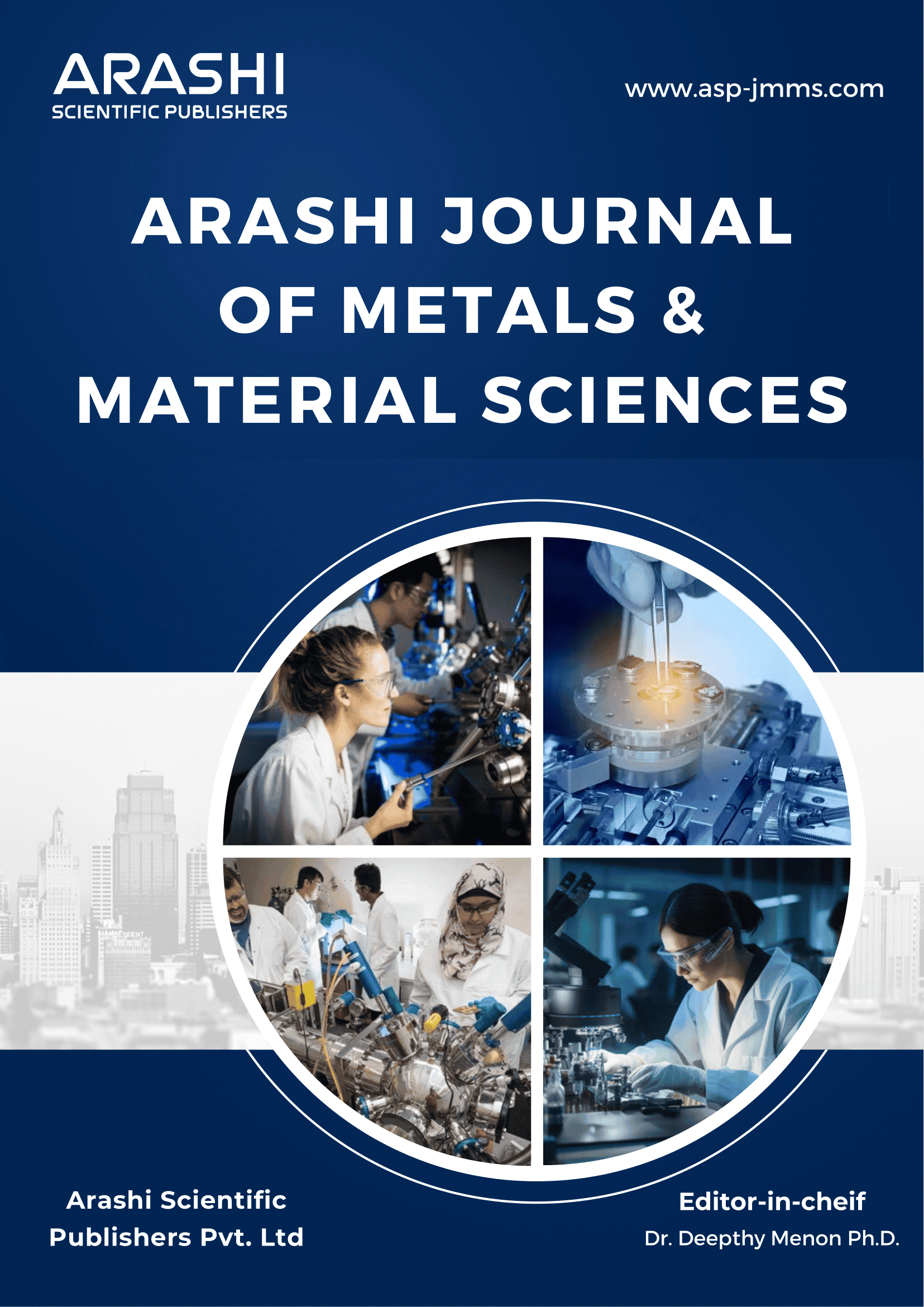Cover Image

-Photoroom.png)
இதழ் பற்றி
அராஷி ஜர்னல் ஆஃப் மெடல்ஸ் அண்ட் மெட்டீரியல் சையன்ஸஸ் என்ற இதழ், உலோகம் மற்றும் பொருட்கள் துறையில் அறிவை மேம்படுத்த அர்ப்பணிக்கப்பட்டுள்ள எதிர்காலத்தில் முன்னிலை வகிக்க இருக்கும் திறந்த அணுகல் இதழாகும்
வெளியீட்டு அம்சங்கள்
ஜர்னலின் நோக்கம்
கட்டுரை வகைகள்
இதழ் பல்வேறு கட்டுரை வகைகளை வரவேற்கின்றது.
இதழின் விவரங்கள்
|
வெளியீட்டின் அதிர்வெண் |
: அரையாண்டு |
|
வெளியீட்டு வடிவம் |
: நிகழ்நிலை |
|
மொழி |
: ஆங்கிலம் |
|
தொடக்க ஆண்டு |
: 2024 |
|
DOI |
: 10.54646/jmms |
|
உரிமம் |
|
|
காப்புரிமை அறிக்கை |
: பதிப்புரிமை © 2024; ஆசிரியர்கள்) |
Arashi Journal of Material Science and Engineering is an upcoming leading open-access journal dedicated to the advancement of knowledge in the field of materials science, with a specific focus on metals and materials.
Publication Features
Scope of the Journal
Types of Articles
The journal welcomes a variety of manuscript types, each serving a unique purpose within the scientific community:
| Frequency of Publication | : Half-Yearly |
| Publication Format | : Online |
| Language | : English |
| Starting Year | : 2024 (Since July 2024) |
| DOI | : 10.54646/jmms |
| License | : CC BY 4.0 |
| Copyright Statement | : Copyright © 2024; The Author(s) |